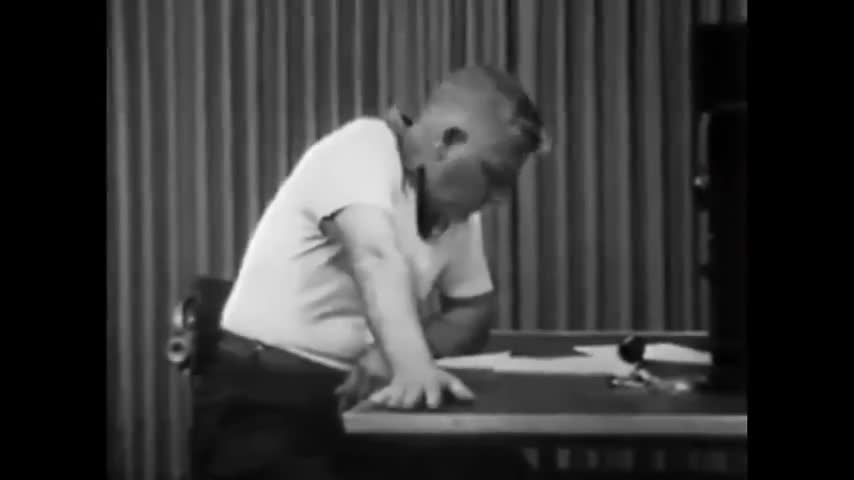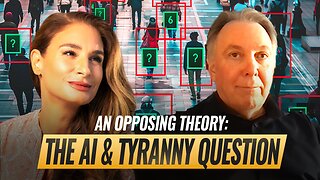Premium Only Content

Obedience - The Milgram Experiment
Milgram experiment
From Wikipedia, the free encyclopedia
For Milgram's other well-known experiment, see Small-world experiment.
"Obedience to Authority" redirects here. For the book, see Obedience to Authority: An Experimental View.
The experimenter (E) orders the teacher (T), the subject of the experiment, to give what the teacher (T) believes are painful electric shocks to a learner (L), who is actually an actor and confederate. The subject is led to believe that for each wrong answer, the learner was receiving actual electric shocks, though in reality there were no such punishments. Being separated from the subject, the confederate set up a tape recorder integrated with the electro-shock generator, which played pre-recorded sounds for each shock level.[1]
The Milgram experiment(s) on obedience to authority figures was a series of social psychology experiments conducted by Yale University psychologist Stanley Milgram. They measured the willingness of study participants, men 20–50 years old from a diverse range of occupations with varying levels of education, to obey an authority figure who instructed them to perform acts conflicting with their personal conscience. Participants were led to believe that they were assisting an unrelated experiment, in which they had to administer electric shocks to a "learner". These fake electric shocks gradually increased to levels that would have been fatal had they been real.[2]
The experiment found, unexpectedly, that a very high proportion of subjects would fully obey the instructions, albeit reluctantly. Milgram first described his research in a 1963 article in the Journal of Abnormal and Social Psychology[1] and later discussed his findings in greater depth in his 1974 book, Obedience to Authority: An Experimental View.[3]
The experiments began in July 1961, in the basement of Linsly-Chittenden Hall at Yale University,[4] three months after the start of the trial of German Nazi war criminal Adolf Eichmann in Jerusalem. Milgram devised his psychological study to explain the psychology of genocide and answer the popular contemporary question: "Could it be that Eichmann and his million accomplices in the Holocaust were just following orders? Could we call them all accomplices?"[5] The experiment was repeated many times around the globe, with fairly consistent results.
-
 7:50
7:50
The World We Live In
1 month agoA message to those truly awake.
4411 -

Jake Shields' Fight Back Podcast
7 hours agoJake Shields and Paul Miller!
8.38K12 -
 LIVE
LIVE
TheSaltyCracker
1 hour agoTrump Is Not Dead ReEEeStream 8-31-25
14,385 watching -
 LIVE
LIVE
Jean-Claude@BeyondMystic
11 hours ago🌀 THE WACKY WOO SHOW 3I ATLAS ALIEN INVASION with DICK ALLGIRE & JC - AUG 31 , 20254
5,714 watching -
 2:26:21
2:26:21
vivafrei
11 hours agoEp. 279: Patel's GF Sues for Defamation! Rogue Judges vs. Trump! Raja Jackson, Kick Stream & MORE!
108K42 -
 LIVE
LIVE
SpartakusLIVE
2 hours ago#1 Verdansk Sniper gets HACCUSATIONS because of INSANE Headshots
204 watching -
 18:52
18:52
Colion Noir
8 hours agoCourt Rules You Don't Need AR-15s For Self Defense, Mayor's Message If You Love Kids Ban AR-15s
10.7K39 -
 1:56:25
1:56:25
Nerdrotic
3 hours ago $1.92 earnedThe Mysteries of Mars and the Moon with Mike Bara | Forbidden Frontier #114
10.6K3 -
 1:11:31
1:11:31
The Mel K Show
2 hours agoMel K & Chas Holloway | An Opposing Theory: The AI & Tyranny Question | 8-31-25
5.48K2 -
 LIVE
LIVE
Rallied
2 hours ago $1.26 earnedSolo Challenges All Day
163 watching